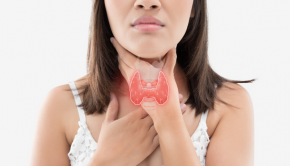Thyroid, Electrical Hypersensitivity and Grounding
Many doctors and other health professionals in North America are not yet aware of the recent scientific evidence surrounding thyroid disease. Next to diabetes, a sluggish thyroid (hypothyroidism) is the most common endocrine disorder in this country. It is perceived as a so-called lifestyle disease, meaning that our own choices are partially to blame and need changing to correct the problem. While millions of dollars are spent annually to research and develop pharmaceuticals to manage the symptoms of diabetes and make the public aware of its complications, the same is not true for thyroid.
The thyroid gland’s small size belies its enormous importance in regulating metabolism. If the production of thyroid hormone slows down, we’re likely to gain five to 10 extra pounds or more. The general symptoms include constipation, depression, dry skin, fatigue, hair loss, intolerance to cold, muscle cramps and slow heart rate. More to the point and often overlooked is that symptoms are comprehensive and affect all systems of the body: neurological (e.g. brain fog and depression), vascular (e.g. slow heart rate and intolerance to cold), ophthalmological (e.g. blurred vision) and gastrointestinal (e.g. constipation).
It has been long suspected that the flood of changing environmental exposures over the past generation has contributed to the dramatic increase in both hypothyroidism and hyperthyroidism. More patients today suffer with thyroid problems than ever before. Industrialization and the introduction of plastics and other synthetic materials not only disconnect us from the earth under our feet, they shower us with chemicals that our immune systems cannot tolerate. Thyroid autoimmunity involves loss of tolerance to thyroid proteins in genetically susceptible individuals in association with environmental factors.
For the past 50 years or so, we’ve added carpets, plastics, synthetic-soled shoes and athletic sneakers, all serving as non-conductive barriers between the Earth and our bodies. The feeling of being shocked after walking across a carpeted floor shows that our body is a conductor. This is important because when we are ungrounded, electric fields are attracted to our body and create a surface charge—a voltage. Thyroid sufferers, as you probably know, have an already weakened immune system and are vulnerable to both multiple chemical sensitivity and electric hypersensitivity, each of which has been born out of this changing environmental pattern.
The most important time to be grounded is while we’re sleeping. The average bedroom contains more electrical noise than any other room in a house, especially near where our head rests on the bed, with lamps, clocks and myriad digital devices at hand. Also, we spend a third of our life in bed. This is the time when our body should be repairing and regenerating, and electrical noise may interfere with this process, potentially causing chronic stress and inflammation.
It is suspected by some that under continued exposure to electromagnetic radiation, people get progressively worse. Most sufferers tend to be women, often over 40 and symptoms tend to worsen over time and continued exposure to environmental factors. The issues of grounding and heavy metal toxicity and electrical hypersensitivity may be some of the most significant. Advocates believe that the more our system is contaminated with heavy metals, particularly the thyroid, whether from silver amalgam fillings, contaminated fish or coal plant emissions, the more our body becomes a virtual antenna that concentrates radiation, making it far more destructive.
 Dr. Doug Pucci, DC, DPSc, FAAIM, regularly offers in-office seminars presenting the latest science and clinical data on neurotoxic illness, hormone imbalances and chronic disease. For more information, call 201-261-5430 or visit GetWell-Now.com.
Dr. Doug Pucci, DC, DPSc, FAAIM, regularly offers in-office seminars presenting the latest science and clinical data on neurotoxic illness, hormone imbalances and chronic disease. For more information, call 201-261-5430 or visit GetWell-Now.com.



























